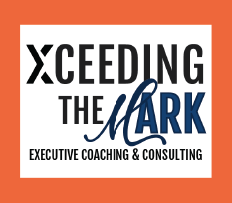Frequently Asked Questions
ABOUT DR. BONNIE’S EXECUTIVE COACHING
What is Executive Coaching?
Executive coaching involves a coach coming alongside the client as a partner. Together the two look at where the leader is and where they want to be. The coach is the objective, confidential, objective, thought partner and the “accountabilibuddy.” Our Executive Coaches are trained and experienced, ICF certified, and possess leadership background. While there may be times.
Is my information shared with anyone else?
At the beginning the engagement, the executive coach will build an individual development plan (IDP). The leader, the manager and the executive coach review the focus areas so everything is on the same page and is transparent. Focus areas, engagement level, and any executive coaching concerns may also be discussed. However, the specific coaching conversations are confidential. In the instance that the XTM asks for a testimonial, we will obtain your written permission and only use your name and organization if you expressly agree.
How does executive coaching differ from counseling, consulting & mentoring?
Counseling is provided by a licensed healthcare professional (LIP). counseling is provided by a licensed mental health professional typically in the areas of mood disorders anxiety disorders, personality disorders, or psychotic disorders (such as schizophrenia). Coaching is not therapy and does not substitute for therapy if needed, and does not prevent, cure, or treat any mental disorder or medical disease. If it appears that there is an issue for which the leader may need counseling, the Executive Coach will suggest it. Some individuals choose to engage in coaching and counseling simultaneously but with a focus on different areas of life for each service.
Consulting is done by individuals experienced in their particular field. A consultant asks for data prior to their visit, may observe situations and activities, prepares a report and gives it back to the organization. The organization decides whether they want to implement the plan on their own or use the consulting consultant to assist.
Mentoring is often provided as informal advice by a friend or colleague in a senior position or at a level the client is seeking to attain.
There may be times in the sessions where the executive coach may include mentoring and consulting in the session.
Can you guarantee results with executive coaching?
To obtain the best outcome leaders must fully participate in coaching and follow the Executive Coach’s instructions to the best of their ability. A leader who agrees to communicate honestly, be open to feedback and assistance, create the time and energy to participate fully in the program, and is committed to their responsibilities, will see progress towards the pre-established goals. The leader’s outcome will only be as good as the leader’s participation. While individual performance cannot be guaranteed due to the variable nature of human behavior and effort, XTM guarantees to do everything to help the leader reach the desired outcome.
Will my executive coach be telling me what to do?
The coach is not your manager. A coach’s job is not to tell you what to do, but rather to help you uncover the answers that lie within you. Coaching is team sport. You will get out of it what you put into it.
Can I get a refund if things don’t work with my executive coaching
Coaching is time-sensitive and we cannot regain the time spent together. Therefore, we do not provide refunds for our coaching services.
What if I have a problem with my executive coach?
At the beginning, periodically throughout, and at the end of your coaching engagement, your coach will ask for honest feedback on things that went well and things that need improvement. For the coaching relationship to be successful, the client and the coach have to have a trusting relationship where both can have an open and honest dialogue even when the subject(s) is uncomfortable. If at any time during the coaching relationship the leader feels uncomfortable or is not receiving the desired outcome, the leader should reach out to the executive coach even if it is not during the normal coaching session. At XTM our goal is for you to become a better and more effective leader. Having difficult and sometimes uncomfortable conversations are one of the foundational competencies of an effective leader. Giving and receiving feedback is also a fundamental characteristic that your coach takes very seriously. To have the most effective conversations and maintain that trusted relationship, your executive coach will proactively ask for feedback at the beginning, middle and end of the coaching relationship and at any point during when a perceived problem is detected.
